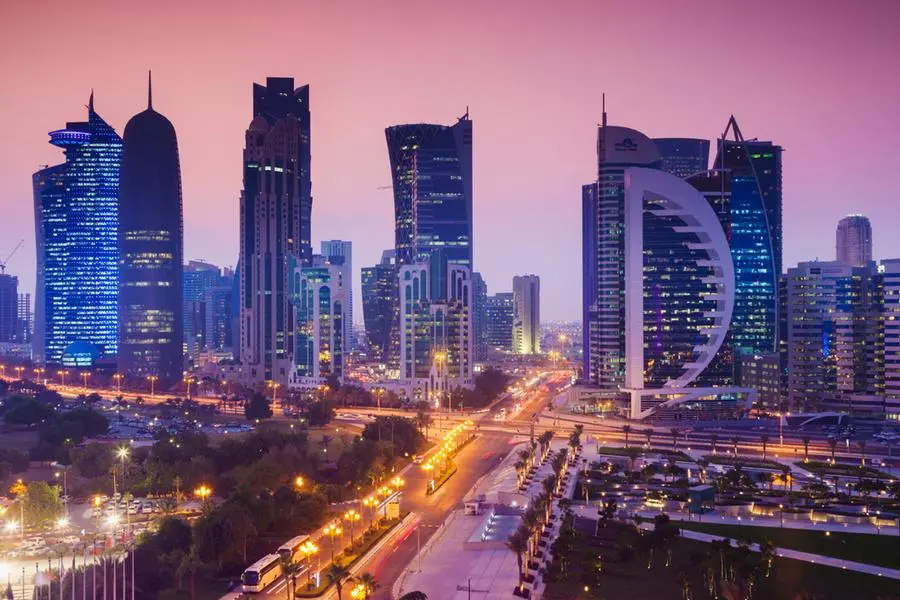PHOTO
The pressing need for increased collaboration with the private sector to address unprecedented challenges hindering global humanitarian efforts was highlighted by HE the Minister of State at the Ministry of Foreign Affairs Dr Mohamed bin Abdulaziz al-Khulaifi on Monday at the Doha Forum 2023.
“In a world filled with unprecedented challenges, we must come together to tackle those obstacles that hinder our ability to provide aid and assistance to those in need. Let us first acknowledge that there are some challenges that need to be presented,” he explained in his speech during the launch of the Global Humanitarian Overview 2024.
Among these challenges, Dr al-Khulaifi noted, are a growing loss of trust in international institutions, high costs associated with relief and development models, and a concerning donor fatigue. He pointed out that addressing these issues is crucial at a time when global co-operation is extremely needed.
Expressing concern over a decline in donor enthusiasm, Dr al-Khulaifi stressed the potentially devastating consequences for those in need. He cited the current crisis in Gaza as an example of the tragic reality faced by civilians.
He said the ongoing military attacks have resulted in a staggering toll: more than 17,000 people killed, with women and children accounting for more than 70% of the casualties; 40,000 people injured; and 1.9mn displaced. Numerous places of worship have been severely damaged, schools remain empty, and half of Gaza’s population is facing starvation.
Amid these crises, Dr al-Khulaifi proposed a paradigm shift in humanitarian efforts, underlining the importance of engaging with the private sector. He urged leveraging the resources and expertise of private companies, stating that innovation can complement the work of international organisations and governments.
“We also need to ensure that the humanitarian actions should remain impartial and free from political influence,” he said, as he called for embracing innovation and technology in aid and assistance delivery.
“From advanced logistics to data-driven decision-making, these tools can help us to work more efficiently and effectively, ultimately saving the lives of those who need them.
“It is about reaching out to those who are most vulnerable, giving voices to the voiceless and rebuilding not just the physical infrastructure but also their dignity, hope, possibilities and a better tomorrow,” Dr al-Khulaifi said.
© Gulf Times Newspaper 2022 Provided by SyndiGate Media Inc. (Syndigate.info).“In a world filled with unprecedented challenges, we must come together to tackle those obstacles that hinder our ability to provide aid and assistance to those in need. Let us first acknowledge that there are some challenges that need to be presented,” he explained in his speech during the launch of the Global Humanitarian Overview 2024.
Among these challenges, Dr al-Khulaifi noted, are a growing loss of trust in international institutions, high costs associated with relief and development models, and a concerning donor fatigue. He pointed out that addressing these issues is crucial at a time when global co-operation is extremely needed.
Expressing concern over a decline in donor enthusiasm, Dr al-Khulaifi stressed the potentially devastating consequences for those in need. He cited the current crisis in Gaza as an example of the tragic reality faced by civilians.
He said the ongoing military attacks have resulted in a staggering toll: more than 17,000 people killed, with women and children accounting for more than 70% of the casualties; 40,000 people injured; and 1.9mn displaced. Numerous places of worship have been severely damaged, schools remain empty, and half of Gaza’s population is facing starvation.
Amid these crises, Dr al-Khulaifi proposed a paradigm shift in humanitarian efforts, underlining the importance of engaging with the private sector. He urged leveraging the resources and expertise of private companies, stating that innovation can complement the work of international organisations and governments.
“We also need to ensure that the humanitarian actions should remain impartial and free from political influence,” he said, as he called for embracing innovation and technology in aid and assistance delivery.
“From advanced logistics to data-driven decision-making, these tools can help us to work more efficiently and effectively, ultimately saving the lives of those who need them.
“It is about reaching out to those who are most vulnerable, giving voices to the voiceless and rebuilding not just the physical infrastructure but also their dignity, hope, possibilities and a better tomorrow,” Dr al-Khulaifi said.





















